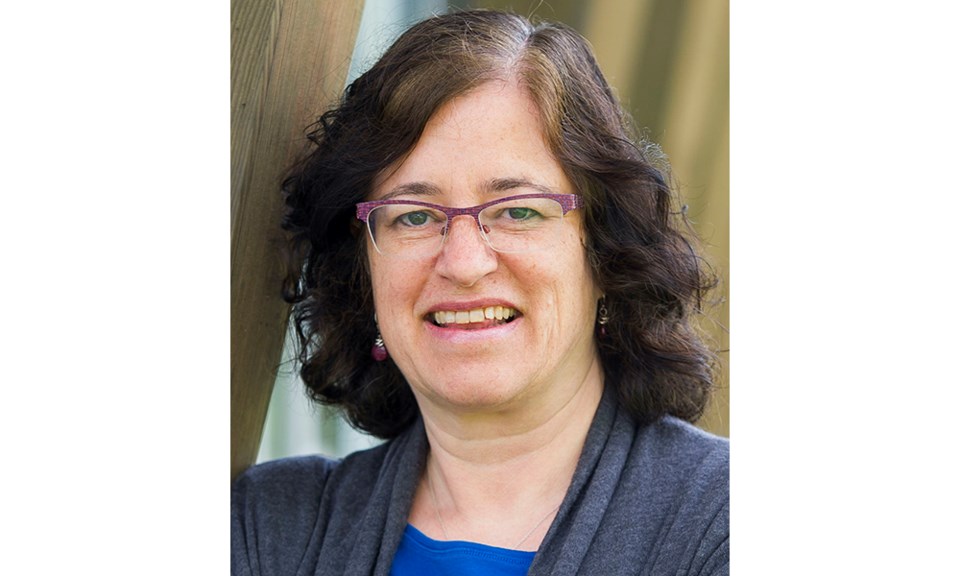I was surprised and dismayed to read the recent letter from Elly Fenton and Lenny Entwistle, owners of two Steveston shops, who wrote to The Richmond News to say that an increasing number of school-aged children are shoplifting from their shops, and, even worse, when they get caught they think it’s a joke and show no guilt or remorse.
That came just after news stories reporting that a 23-year-old woman was stabbed with a hypodermic needle in an unprovoked attack in Vancouver’s Downtown Eastside. Apparently, there have been more than 1,555 unprovoked, stranger assaults over the past year in Vancouver.
More than four people a day are the target of a random, unprovoked assault, the Vancouver Police Department reported on Twitter. Calling these attacks “concerning” and “alarming,” the VPD said nearly half involved weapons, just more than one-quarter of the suspects appeared to be living with mental illness and one-quarter of the victims were female.
“The majority of victims were simply going about their day: running errands, walking, or visiting our city,” the VPD said.
Those reports follow on earlier astounding news that Vancouver had a massive increase in Anti-Asian hate crimes during the pandemic, leading B.C.’s Office of the Human Rights Commissioner to launch a public inquiry.
“It is critical for all of us to be better prepared to prevent and respond to hate during global health, economic and social crises to protect our human rights during turbulent times,” B.C.’s Human Rights Commissioner Kasari Govender said in a news release. A report will be released in a year.
What is going on in our supposed civil society? This is Canada, the land where people are so polite, they are known for apologizing too often and too profusely. But our new reality is that kids are shoplifting, unabashed, people are randomly attacking others and hate crimes are increasing. How can we make it stop?
The pandemic and all its associated stresses has to be playing a role. If we’re lucky, COVID-19 may become endemic at some point next year, scientists say. But other causes, like despair over poverty, struggles with mental health and the opioid addiction crisis will still be with us. Inequality exacerbates those problems, making discontent and frustration more extreme.
I’m convinced education can play a role in alleviating all of these issues and teaching empathy would be a good place to start.
Steveston shopkeepers Elly Fenton and Lenny Entwistle say parents should start by talking to their kids.
“Shoplifting isn’t a joke. It isn’t harmless; it impacts our businesses and our livelihoods. It costs us dearly, and we hope we won’t have to close up shop as a result of this,” they wrote.
Spend time with your kids, time dedicated to teaching them how to be better citizens in the world they will inherit. Put down the phone and really focus on them. Explain to them who pays when someone shoplifts – let them know the police could be called, because shoplifting is a crime and that they are hurting someone personally by stealing. Explain the human impact to build empathy.
Read with your children and help them learn a love of reading that will accompany them through life and soothe them through tough times. Many studies have found that reading fiction improves empathy, which makes sense because empathy is all about understanding another person’s story.
Reading fiction is becoming a lost art because of computers and all of the entertainment options they bring. I’m a lifelong bookworm, but even I find the distractions of endless Netflix binges or the bottomless scroll of Facebook irresistible. I can’t imagine how difficult it is for a child or a teenager – they’re all digital natives – to still their mind long enough to read. But I believe it’s a skill worth honing, not only as individuals, but also as a panacea for a world filled with random stranger attacks and racist hate crimes.
Teach your kids to love school. It’s one place they can safely form relationships with adults who are not their parents. Being comfortable in this type of relationship is key to having a successful, independent life. How does one get and keep a job or maintain housing or get medical or mental health help when it’s needed if they don’t know how to have relationships with adults who are not their parents? The simple answer is, they often don’t.
My suggestions won’t solve everything, but they won’t hurt. The world can be a difficult place where life can be “nasty, brutish and short,” as Thomas Hobbes said in 1651. But it doesn’t have to be. Life can also be beautiful.
Tracy Sherlock is a freelance journalist who writes about education and social issues. Read her blog or email her [email protected].



